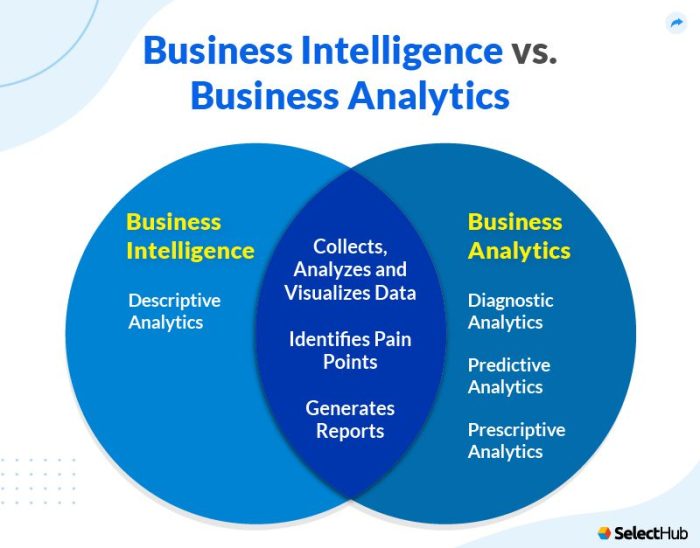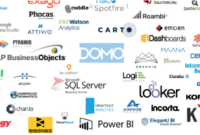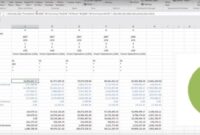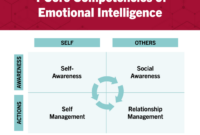Business intelligence analyst vs data analyst – In the realm of data analysis, the roles of Business Intelligence Analyst and Data Analyst often intersect, yet each holds unique responsibilities and career trajectories. This comprehensive guide delves into the distinctions between these two professions, exploring their essential skills, tools, and advancement opportunities.
From defining their core functions to identifying the industries where they thrive, we’ll provide a clear understanding of the nuances that set Business Intelligence Analysts apart from Data Analysts.
Business intelligence analysts and data analysts share similarities, but they have distinct roles. Business intelligence analysts focus on using data to make informed decisions, while data analysts focus on collecting, cleaning, and analyzing data. Looker Business Intelligence is a popular tool for business intelligence analysts, as it allows them to easily visualize and analyze data.
With Looker, business intelligence analysts can quickly identify trends and patterns, and make data-driven decisions that can improve business outcomes.
Business Intelligence Analyst vs Data Analyst

In the data-driven business landscape, business intelligence analysts and data analysts play crucial roles in extracting insights from data. While their responsibilities overlap, there are distinct differences in their approaches and career paths.
Definitions, Business intelligence analyst vs data analyst

Business Intelligence Analyst:
Business intelligence analysts and data analysts play crucial roles in leveraging data to drive business decisions. However, businesses are increasingly turning to artificial intelligence to automate data analysis and gain deeper insights. As AI becomes more sophisticated, the distinction between business intelligence analysts and data analysts may continue to blur, with both professionals requiring expertise in data science and AI.
Business intelligence analysts translate raw data into actionable insights for business decision-making. They identify trends, patterns, and anomalies in data to help organizations understand their performance, market opportunities, and customer behavior.
Data Analyst:
While business intelligence analysts focus on using data to improve decision-making, data analysts primarily focus on collecting, cleaning, and organizing data. To learn more about the specific responsibilities and requirements of a business intelligence analyst, check out this comprehensive guide on business intelligence analyst job.
This resource provides valuable insights into the skills, qualifications, and career path of business intelligence analysts, helping you make informed decisions about your professional development.
Data analysts focus on collecting, cleaning, and preparing data for analysis. They ensure data accuracy and integrity, enabling business intelligence analysts and other stakeholders to derive meaningful insights from it.
Key Responsibilities Comparison
| Business Intelligence Analyst | Data Analyst |
|---|---|
| Analyze data to identify trends and patterns | Clean and prepare data for analysis |
| Develop and implement data visualization tools | Build data pipelines and data models |
| Present insights to stakeholders and recommend actions | Monitor data quality and ensure accuracy |
Closure

As the demand for data-driven insights continues to soar, Business Intelligence Analysts and Data Analysts will remain indispensable figures in various industries. Their ability to extract meaningful information from complex data empowers organizations to make informed decisions and gain a competitive edge.
By understanding the differences and similarities between these two roles, professionals can make informed career choices and contribute effectively to the data-driven landscape of the future.
FAQ Section: Business Intelligence Analyst Vs Data Analyst
What is the primary difference between a Business Intelligence Analyst and a Data Analyst?
Business Intelligence Analysts focus on transforming raw data into actionable insights for business decision-making, while Data Analysts primarily work with data exploration, cleaning, and modeling.
Which role requires stronger communication skills?
Business Intelligence Analysts typically need stronger communication skills to effectively convey insights to stakeholders.
What are the most common tools used by Data Analysts?
Data Analysts commonly use tools like SQL, Python, R, and data visualization software.




